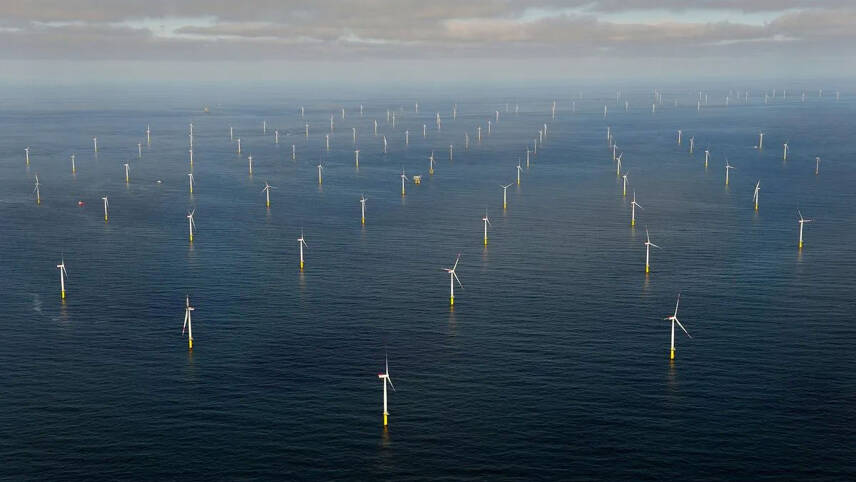Register for free and continue reading
Join our growing army of changemakers and get unlimited access to our premium content

Image: Orsted
That is according to BloombergNEF’s new Corporate Energy Market Outlook, published on Tuesday (13 February).
The Outlook confirms that cumulative purchasing has now exceeded 170GW, and that the US remains the largest market for PPAs. The USA accounted for 45% of the total capacity of the agreements confirmed last year.
Moreover, the world’s biggest corporate clean energy buyers are US-based. Amazon took first place once again with 8.8GW of PPAs across 16 countries. Meta and Google were also in the top five.
But Europe was the world’s fastest-growing PPA market, with volumes announced growing 74% year-on-year. BloombergNEF found that corporate PPA prices dropped significantly in 2023, following a hike in prices during 2022 amid the peak of the energy crisis. As such, they became increasingly attractive to businesses in terms of economic opportunity as well as environmental impact.
Europe’s largest PPA markets in 2023 were Spain, Germany, the UK and the Netherlands. The continent’s largest corporate clean energy buyer is chemicals giant LyondellBasell.
BloombergNEF has stated that, in 2023, “the economics for signing PPAs were far weaker in the US” than Europe. PPA prices increased by 4% in the first half of 2023, causing buyers to delay in some cases. Price hikes were attributed to high interest rates, compounded by expensive equipment contracts signed in recent years during supply chain bottlenecks.
Another key finding is that PPAs are becoming more accessible in markets that have previously lagged behind, including in the Asia-Pacific region. South Korea’s PPA market, in particular, is noted as having significant potential for exponential growth in the years ahead.
BloombergNEF’s head of sustainability research Kyle Harrison said: “It has never been easier to buy clean energy as a corporation. For the first time, a variety of contracting structures are now widely available around the world to help companies decarbonize their energy consumption. These contracts are now the centerpiece in many companies’ sustainability strategies, rather than a nice-to-have.”
RE100 members now consume more electricity annually than France and can, therefore, collectively influence policymaking to unlock the energy transition.
Related news: Google unveils major renewable PPAs in Europe
Related news: Britvic taps solar farm on former English quarry
Related feature: Why the benefits of trebling renewables by 2030 outweigh potential negatives


PPAs, power purchase agreements, are business, administrative, agreements. They do not generate, in themselves, a single watt.second of energy.